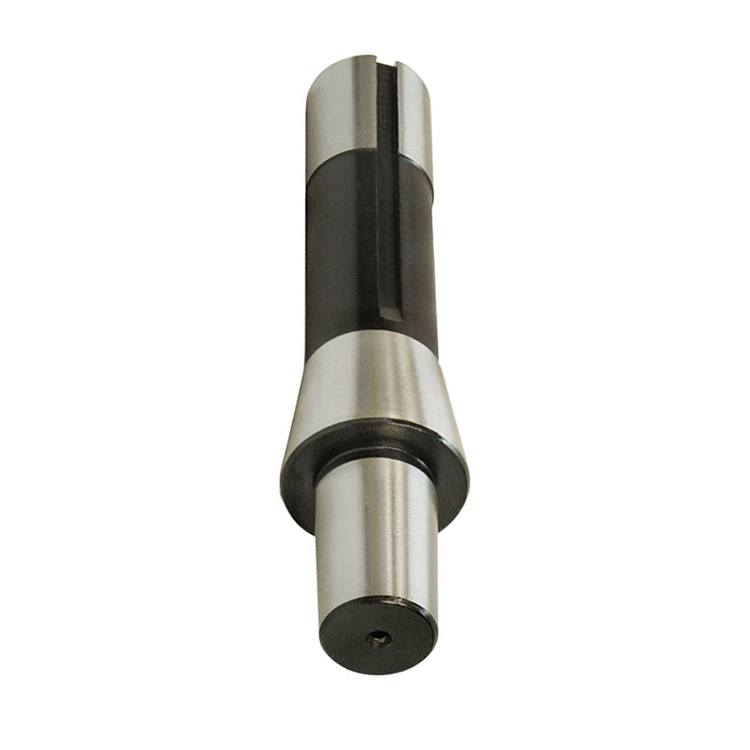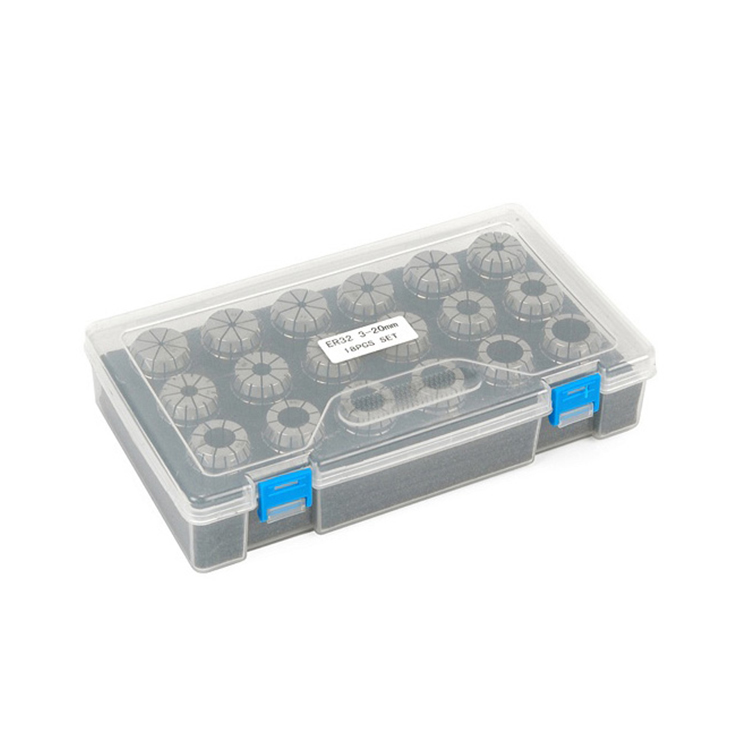tapered reamer Manufacturer
A tapered reamer is a crucial cutting tool used to enlarge or finish existing holes to precise dimensions with a slight taper. Ideal for creating perfectly sized holes for tapered pins, fasteners, or dowels, understanding the different types, applications, and selection criteria is essential for achieving optimal results. This guide covers everything from the basics of tapered reamer design to advanced techniques and manufacturer considerations.
Understanding Tapered Reamers
What is a Tapered Reamer?
A tapered reamer is a multi-fluted cutting tool designed to enlarge or finish a pre-drilled or existing hole with a specific taper. Unlike straight reamers that create cylindrical holes, tapered reamers produce conical holes, offering a precise fit for tapered components. They are available in various sizes, materials, and taper angles to suit a wide array of applications.
Types of Tapered Reamers
Tapered reamers are classified based on their construction, cutting action, and intended use.
Hand Reamers
Hand reamers are designed for manual operation. They feature a square head for use with a tap wrench or similar tool. Hand reamers are ideal for precise, low-volume work and are often used in tool and die making.
Machine Reamers
Machine reamers are intended for use with power tools, such as drill presses or CNC machines. They have a cylindrical shank for secure gripping and are designed for higher speed and feed rates, making them suitable for production environments. They are manufactured with tighter tolerances than hand reamers.
Spiral Flute Reamers
Spiral flute reamers have flutes that are helically twisted along the body. This design provides a smoother cutting action, reduces chatter, and promotes better chip evacuation, especially in deep holes or harder materials. They are favored for finishing operations where surface quality is paramount. These are available in both left hand and right hand spiral flute configurations.
Straight Flute Reamers
Straight flute reamers have flutes that run parallel to the axis of the reamer. They are suitable for general-purpose reaming applications in softer materials. While less effective at chip evacuation compared to spiral flutes, straight flutes offer simplicity and cost-effectiveness.
Materials Used in Tapered Reamers
The material of a tapered reamer directly affects its performance, durability, and suitability for specific materials.
High-Speed Steel (HSS)
HSS reamers are a common choice for general-purpose applications. HSS offers a good balance of hardness, toughness, and cost. They are suitable for machining a wide range of materials, including steel, aluminum, and plastic.
Cobalt Steel (HSCO)
Cobalt steel reamers contain a percentage of cobalt, which enhances their hardness and heat resistance. HSCO reamers excel in machining harder and more abrasive materials, such as stainless steel, cast iron, and titanium alloys. They maintain their cutting edge at higher temperatures, extending tool life.
Carbide
Carbide reamers offer the highest hardness and wear resistance. They are capable of machining extremely hard materials at high speeds and feeds. Carbide reamers are commonly used in CNC machining and production environments where precision and long tool life are critical. They can be solid carbide or carbide-tipped.
Applications of Tapered Reamers
Tapered reamers find application in various industries and processes:
- Tool and Die Making: Creating precise tapered holes for dowel pins and other locating elements.
- Automotive: Reaming valve guides, kingpin bushings, and other tapered fittings.
- Aerospace: Manufacturing tapered holes for fasteners in aircraft structures.
- Musical Instruments: Crafting tapered holes in woodwind instruments for precise fitting of components.
- Gunsmithing: Reaming chamber tapers and other critical dimensions in firearms.
Selecting the Right Tapered Reamer
Choosing the appropriate tapered reamer for a specific application involves considering several factors:
Taper Angle
The taper angle of the reamer must match the taper angle of the component being fitted. Common tapers include Morse tapers, Jarno tapers, and National Pipe Taper (NPT). Verify the taper specifications before selecting a reamer.
Material Compatibility
Select a reamer material that is compatible with the material being machined. HSS is suitable for general-purpose applications, while HSCO and carbide are preferred for harder materials.
Hole Size and Tolerance
Ensure that the reamer size matches the desired hole size and tolerance. Reamers are available in fractional, decimal, and metric sizes. Precision reamers are capable of achieving very tight tolerances.
Flute Design
Choose a flute design that is appropriate for the application. Spiral flutes are preferred for smooth cutting and chip evacuation, while straight flutes are suitable for general-purpose reaming.
Hand vs. Machine Reaming
Decide whether hand or machine reaming is appropriate for the job. Hand reamers offer greater control for precise work, while machine reamers are more efficient for production environments.
Finding a Reliable Tapered Reamer Manufacturer
Selecting a reputable tapered reamer manufacturer is crucial for ensuring quality, performance, and reliability. Consider the following factors:
Experience and Expertise
Look for a manufacturer with a proven track record in producing high-quality cutting tools. Experienced manufacturers possess the knowledge and expertise to meet demanding specifications. Wayleading Tools, with years of experience in the industry, provides high-quality cutting tools. You can visit www.wayleading.com for more information about our products.
Material Quality
Inquire about the materials used in the reamers. Reputable manufacturers use high-quality HSS, HSCO, and carbide to ensure durability and performance.
Manufacturing Processes
Understand the manufacturer's manufacturing processes. Precision grinding, heat treatment, and quality control are essential for producing accurate and reliable reamers.
Certifications and Standards
Check if the manufacturer is certified to relevant industry standards, such as ISO 9001. Certifications demonstrate a commitment to quality management and process control.
Customization Options
Determine if the manufacturer offers customization options. Custom reamers may be necessary for specialized applications with unique taper angles, sizes, or materials. Many tapered reamer manufacturer, like Wayleading Tools, offer customization options to better suit specific requirements.
Customer Support
Evaluate the manufacturer's customer support. A responsive and knowledgeable support team can provide valuable assistance with product selection, application advice, and troubleshooting.
Tips for Using Tapered Reamers
Proper usage techniques are essential for achieving optimal results and extending the life of tapered reamers:
- Use Cutting Fluid: Apply cutting fluid to lubricate the reamer and workpiece, reducing friction and heat buildup.
- Maintain Proper Speed and Feed: Use appropriate speed and feed rates for the material being machined. Excessive speed can cause chatter and premature wear.
- Apply Even Pressure: Apply even pressure when hand reaming to prevent uneven hole enlargement.
- Clean Regularly: Clean the reamer and workpiece frequently to remove chips and debris.
- Store Properly: Store reamers in protective cases or racks to prevent damage to the cutting edges.
Troubleshooting Common Issues
Even with proper usage, issues can arise. Here are some common problems and solutions:
- Chatter: Reduce speed, increase feed, or use a spiral flute reamer.
- Oversized Hole: Use a smaller reamer or reduce pressure.
- Poor Surface Finish: Use a sharper reamer, increase speed, or use cutting fluid.
- Reamer Breakage: Reduce speed, feed, or use a more durable reamer material.
Conclusion
Tapered reamers are essential tools for creating precise tapered holes in various applications. By understanding the different types, materials, selection criteria, and usage techniques, professionals can achieve optimal results and ensure the quality of their work. Choosing a reliable tapered reamer manufacturer like Wayleading Tools ( www.wayleading.com ) ensures access to high-quality tools and expert support, and ultimately leads to increased productivity and reduced costs.
Related products
Related products
Best selling products
Best selling products-
 5C Square Collet With Inch and Metric Size
5C Square Collet With Inch and Metric Size -
 Precision Vernier Caliper Of Metric & Imperial For Industrial
Precision Vernier Caliper Of Metric & Imperial For Industrial -
 R8 Drill Chuck Arbor For Milling Machine
R8 Drill Chuck Arbor For Milling Machine -
 Inch HSS Step Drills with Straight Flute
Inch HSS Step Drills with Straight Flute -
 Deburring Tool Holder For The Deburring Tool Blades
Deburring Tool Holder For The Deburring Tool Blades -
 Precision 8pcs & 9pcs Angle Blocks Set With High Quality Type
Precision 8pcs & 9pcs Angle Blocks Set With High Quality Type -
 Type E Oval Tungsten Carbide Rotary Burr
Type E Oval Tungsten Carbide Rotary Burr -
 MT/R8 Shank Quick Change Tapping Chuck With MT & R8 Shank
MT/R8 Shank Quick Change Tapping Chuck With MT & R8 Shank -
 Precision V Block Set With High Quality Type
Precision V Block Set With High Quality Type -
 HSS Metric Taper Shank Twist Drills for High-Precision Metal Cutting
HSS Metric Taper Shank Twist Drills for High-Precision Metal Cutting -
 7pcs Carbide Turning Tool Set With Metric & Inch Size
7pcs Carbide Turning Tool Set With Metric & Inch Size -
 TCT Annular Cutters With Weldon Shank For Metal Cutting
TCT Annular Cutters With Weldon Shank For Metal Cutting
Related search
Related search- reduction sleeves Factories
- IR insert Manufacturers
- MWLN boring bar Manufacturers
- speedy drill with quick release carbide cutting head Factory
- CCGX insert Manufacturers
- Wholesale 7pcs toolholder set
- High-Quality micrometer caliper
- High-Quality tapered reamer
- mini lathe quick change tool post Manufacturer
- Center Drill Factory










